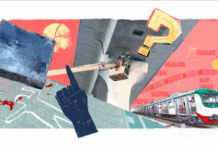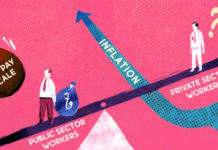All this is feasible without the funding of NGOs or going into debt

- A file photo of the buildings in Dhaka
I write this whilst looking onto one of the most densely populated urbanised areas in the world. It seems to me these days people often take for granted the air that they breathe. I, for one, am a culprit of this.
It’s only when I step into a sanctuary of clean air, as I did earlier today whilst visiting the Botanical Gardens of Bangladesh, that I begin to fully appreciate how much poison I am surrounded with elsewhere in this sprawling city, and indeed other parts of the world.
Amongst the people is an evil terror, which is in and around us all. It is an evil that is not confined just to the streets of Dhaka, where I sit, or even Bangladesh. It is found in developed countries, and developing alike. I talk, of course, of pollution. The smog that envelops us all, as we go about our daily lives, is produced by us so that we can carry on striving for a better life and world.
You may think I am exaggerating when I call this invisible monster an evil, but here are some basic facts, widely agreed amongst the academic community, which may just startle you, but perhaps not: Carbon monoxide is a poison, which can chemically react to create secondary pollutants such as photochemical smog. Nature can no longer manage air pollution without a change in the way we live, bluntly a drastic human intervention. Air pollution leads to the depletion of the ozone layer, resulting in global warming. Cities with high pollution levels subject their citizens to a 20% increase in the chances of getting lung cancer than those with low levels.
In 1998, Dhaka was the most polluted city in the world according to the Asian Development Report. Although there are now cities that have certainly surpassed them to take this unwanted trophy, there are, however, still major concerns as to the quality of life that many Dhakaians face, both individually and collectively.
The problem is not just air pollution, it is water pollution, noise pollution, and a number of other externalities that are human made. Furthermore, many technical projects, such as Bangladesh Environment Institute Strengthening Project (BEISP), Phase-V and 3R seem to have stalled as they have run out of funding.
I often forget that noise (through incessant horns for example) is also a form of pollution. This is symptomatic of a lack of coordination on the streets of Dhaka and tells me that there is a need for order, without which there can be no true law or, more importantly, justice. A true law and order can be realised in Bangladesh by building a sustainable future for generations to come.
What then, is the solution? Surely there is another path, for technology is no longer a barrier, as day-by-day, new ways of garnering renewable energy and reusing waste are implemented in developed nations.
An article by Dr Jamal Anwar, written for the Observer Magazine in 2001, highlights many of the technical flaws and possibilities Bangladesh as a whole faced only a few years ago. In that time, much has changed – the introduction of the CNG all but replacing the two-stroke engine, the increased number of electric rickshaws, a more educated, growing and understanding middle class and the implementation of said projects by the DoE.
Building a ring road around the capital whilst banning petrol-burning cars from the inner city is also a necessary step, which will encourage the savvy middle class boomer to demand electric cars.
Providing safe, well-made roads and a traffic system, which isn’t devoid of use is also a fundamental step. Refuse collection, from bins that are found regularly and consistently around the cities, should lead to well organised recycling centres, preferably collected by bio-fuel run dumpsters.
This is critical to sanitation and hygiene standards being as high as possible, and opens avenues for a balancing of payments through increased bilateral trade with the EU and US. Sustainable construction, using cutting edge composite materials that are recycled to build infrastructure and housing, can help destroy the myth that the developing world is merely the leftover quality seconds consumer.
All this is feasible without the funding of NGOs or going into debt to international financial institutions. All it takes is for start up small and medium enterprises (SMEs) to take on the role of spearheading these initiatives, hopefully with the backing of the government through licensing and subsidies.
I am sure that as a consequence, FDI will be inevitable. Simple solutions like online coach booking services can make using public transport a more amenable option. These are ideas that exist elsewhere – they are moneymaking ventures that are easily replicated.
There is a need to fill our generations to come with hope, providing them with freedom, choices, a great standard of living, and an even better quality of life. I want to go to the Botanical Gardens again one day and not feel suffocated when I walk out. It is not such a distant reality.
Source: Dhaka Tribune









